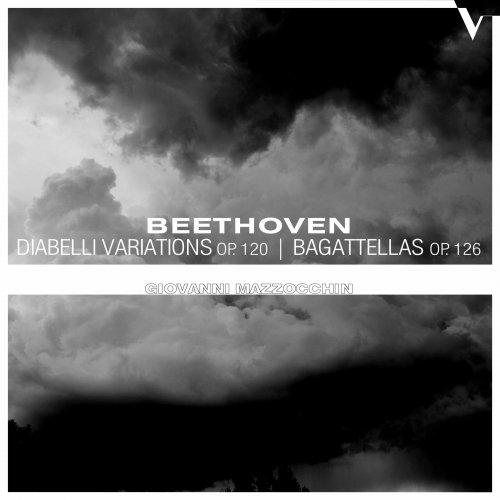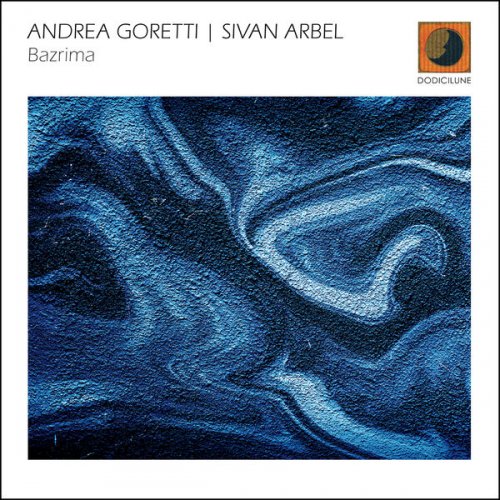Giovanni Mazzocchin - Beethoven: Diabelli Variations, Op. 120 & 6 Bagatelles, Op. 126 (2017) [Hi-Res]

Artist: Giovanni Mazzocchin
Title: Beethoven: Diabelli Variations, Op. 120 & 6 Bagatelles, Op. 126
Year Of Release: 2017
Label: OnClassical
Genre: Classical
Quality: FLAC (tracks) [88.2kHz/24bit]
Total Time: 1:20:40
Total Size: 1.17 GB / 217 MB
WebSite: Album Preview
Tracklist:Title: Beethoven: Diabelli Variations, Op. 120 & 6 Bagatelles, Op. 126
Year Of Release: 2017
Label: OnClassical
Genre: Classical
Quality: FLAC (tracks) [88.2kHz/24bit]
Total Time: 1:20:40
Total Size: 1.17 GB / 217 MB
WebSite: Album Preview
01. Theme: Vivace
02. Variation 1: Alla Marcia, maestoso
03. Variation 2: Poco allegro
04. Variation 3: L'istesso tempo
05. Variation 4: Un poco più vivace
06. Variation 5: Allegro vivace
07. Variation 6: Allegro ma non troppo e serioso
08. Variation 7: Un poco più allegro
09. Variation 8: Poco vivace
10. Variation 9: Allegro pesante e risoluto
11. Variation 10: Presto
12. Variation 11: Allegretto
13. Variation 12: Un poco più mosso
14. Variation 13: Vivace
15. Variation 14: Grave e maestoso
16. Variation 15: Presto scherzando
17. Variation 17: Allegro
18. Variation 18: Poco moderato
19. Variation 19: Presto
20. Variation 20: Andante
21. Variation 21: Allegro con brio
22. Variation 22: Allegro molto
23. Variation 23: Allegro assai
24. Variation 24: Fughetta - Andante
25. Variation 25: Allegro
26. Variation 26: (Piacevole)
27. Variation 27: Vivace
28. Variation 28: Allegro
29. Variation 29: Adagio ma non troppo
30. Variation 30: Andante, sempre cantabile
31. Variation 31: Largo, molto espressivo
32. Variation 32: Fuga - Allegro
33. Variation 33: Tempo di Menuetto, moderato
34. No. 1 in G Major
35. No. 2 in G Minor
36. No. 3 in E-Flat Major
37. No. 4 in B Minor
38. No. 5 in G Major
39. No. 6 in E-Flat Major
"33 Veränderungen über einen Walzer einen Walzer von Diabelli": this is the original German title chosen by Beethoven for one of his last great bursts of musical inspiration. Even the title is remarkable, indeed, he did not choose the traditional word "Variation", but the more germanic-sounding "Veränderungen", whose approximate translation could be "transformation". As a matter of fact, the word "tranformation" fits the purpose: by going through the whole composition, the listener (and the pianist) can realize Beethoven's will for the conversion and destruction of the coarse and childish theme written by Diabelli.
The master from Bonn did not solely "kindle" the futile waltz, but also rediscovered (after the last three sonatas) the great masters of the previous century (in the two fugues) and of the Viennese school (in the last Minuetto).
Even though the Diabelli Variations constitute the master's last outstanding work for the piano, he did not use it so as to give his ultimate farewell to the instrument. While he was delving into the great string quartets, he found the time to write the final set of Bagattellas (literally "trivial things"), in which any kind of rhetoric and wish for greatness is abandoned in order to reach a lighter and fainter musical language: namely the Bagattellas are truly "romantic" creations.
Giovanni Mazzocchin, young promise of Italian pianism, gives to Diabelli Variations (aka. "Transformations") an analytical and very precise reading.
The master from Bonn did not solely "kindle" the futile waltz, but also rediscovered (after the last three sonatas) the great masters of the previous century (in the two fugues) and of the Viennese school (in the last Minuetto).
Even though the Diabelli Variations constitute the master's last outstanding work for the piano, he did not use it so as to give his ultimate farewell to the instrument. While he was delving into the great string quartets, he found the time to write the final set of Bagattellas (literally "trivial things"), in which any kind of rhetoric and wish for greatness is abandoned in order to reach a lighter and fainter musical language: namely the Bagattellas are truly "romantic" creations.
Giovanni Mazzocchin, young promise of Italian pianism, gives to Diabelli Variations (aka. "Transformations") an analytical and very precise reading.

![Ovella Negra - Va de mescles! (2025) [Hi-Res] Ovella Negra - Va de mescles! (2025) [Hi-Res]](https://img.israbox.com/img/2026-01/27/hwawx1tigdrizj1uxrc0ytsm6.jpg)






